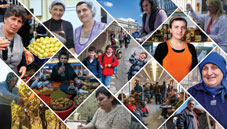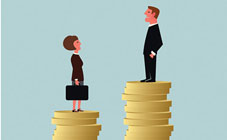
Pandemic risks widen gender gaps in Georgia, says World Bank
By Khatia Bzhalava
Tuesday, March 30
The World Bank released the 2020 Georgia Gender Assessment report yesterday, according to which, Georgia has experienced economic growth and poverty reduction in recent years, however, the benefits of this process have been unevenly distributed between men and women. The report also reads that poverty rates for women fluctuate in Georgia, depending on educational attainment, marital status, and sociodemographic aspects.
According to the World Bank, despite advances in terms of gender equality, against the backdrop of the Covid-19 crisis, the country faces the risk of stagnation and even regress in some areas.
The report reads that even though education is accessible for women in Georgia, it does not necessarily mean the improvement of their skills and labor market outcomes.
“Despite near-universal school coverage, the education system struggles to provide quality learning and skills for boys and girls, which is reflected in Georgia’s Human Capital Index (HCI) of 0.57, implying that children achieve only 57% of their human capital potential by age 18," states the World Bank.
It is pointed out in the report that women face limited access to economic opportunities compared to their male counterparts. According to the WB, Georgia’s gender gap in labor force participation stands at 19 percentage points, and considering the differences in demographics and job characteristics, men earn 16 percent more than women. According to the report, the evidence of the recent survey conducted in Georgia indicates that women have been more likely than men to leave jobs since the breakout of COVID-19.
The World Bank says that in the Europe and Central Asia region, the pandemic has further aggravated gender vulnerability, where women face immense stress in balancing “paid and unpaid work,” which implies, on the one hand, family and childcare needs, and on the other hand, ensuring the successful operation of their own business and activities.
The World Bank noted that they are committed to continuing to support the government, civil society, and other development partners in promoting gender equality for Georgia and its people.


